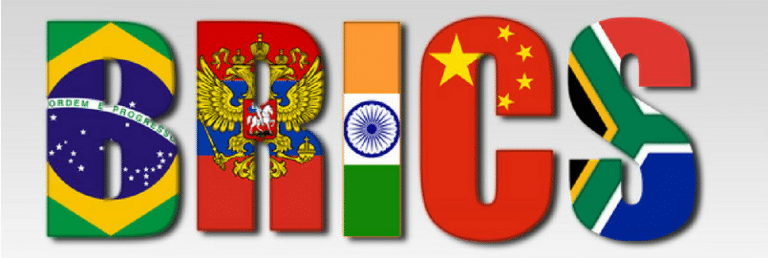
Moon Desk: The BRICS group of developing nations – Brazil, Russia, India, China and South Africa – intends to announce a new guarantee fund backed by the New Development Bank (NDB) to reduce financing costs and stimulate investment. The proposed BRICS Multilateral Guarantee (BMG) mechanism, developed within the NDB, has received technical approval from member states.
This initiative draws inspiration from the World Bank’s Multilateral Investment Guarantee Agency (MIGA) and aims to address uncertainties arising from the unpredictable policies of the Trump administration. Additionally, the recent Israel-Iran conflict and the associated risks, including transcontinental business disruptions and vulnerabilities in financial markets, have also contributed to the push for alternative solutions.
BRICS presents a compelling alternative to the geopolitically driven world order. However, with India heavily aligned with the US-led, anti-China-Russia Western bloc, can the organisation realistically pursue its objectives, such as currency swaps and non-dollar bilateral or multilateral trade, which US President Donald Trump fears will only diminish the dollar’s influence?
The ostracisation and vilification of Russia and China serve as the rationale for the US-led G-7, the Quad, 2+2 (India, US), AUKUS, NATO and other initiatives. These entities, including the US, perceive India as a regional counterweight to China. In this context, can other BRICS members trust India, which projects an image of arrogance and insensitivity, particularly vis-à-vis smaller nations such as Pakistan, Bangladesh and Sri Lanka — a country governed by Hindu extremist ideology?
India’s intransigence has effectively crippled SAARC and potentially may hinder the growth of BRICS or even block some initiatives that the US may find detrimental to its dollar interests. Therefore, a pertinent question arises: Is India a facilitator or a veiled detractor of the BRICS agenda?
Secondly, will India maintain its alliances with the West and permit the growth of a group led by Russia and China, both of which are under US/Western sanctions or restrictions, effectively portraying them as villains for the US?
The Western bias or disinclination towards Russia and China is prevalent in various aspects of work. How can this grouping then allow India to be a partner in promoting BRICS, which is perceived as a brainchild of Beijing and Moscow to counteract Western hegemony?
With great suspicion does the West view BRICS’s instruments for trade and financial such as the NDB, trade facilitation mechanisms and the agreement to conduct transactions in their own currencies rather than the US dollar?
Therefore, a pertinent question arises: will India assume the role of a facilitator or a covert spoiler, effectively acting as a mole for the United States? Can BRICS truly thrive when India has interests in both the Eastern and Western blocs? The duplicitous stance India adopted during the Israel-Iran conflict, where it refrained from condemning Tel Aviv for excessive aggression against Tehran, is certainly not lost on other regional powers.
Iranian leadership interpreted this posture as direct support for Israel and, by implication, for the United States. Can New Delhi effectively navigate its position when dealing with G-7 and BRICS and whether other members will trust it — an essential element for pursuing common goals?





